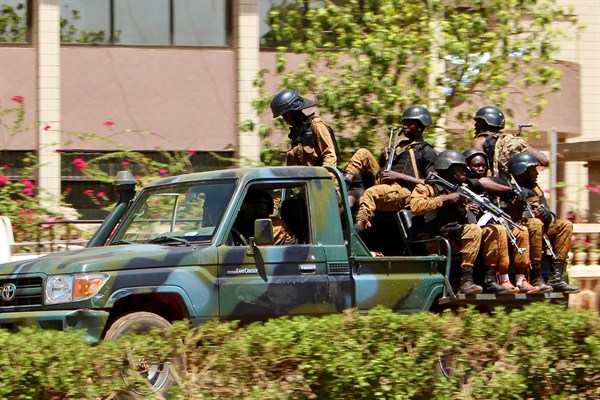On May 12, unknown attackers killed a Catholic priest and five worshippers in northern Burkina Faso, before burning the church. Two days later, four Catholics were killed in a separate attack in the region. It was the third attack on Christians in Burkina Faso in just three weeks. Then, two weeks later, gunmen raided another church in the region and shot four people dead.
The targeting of both Catholics and Protestants in the country comes amid a wider unraveling of security that has killed and displaced Muslims and Christians alike. In this rising crisis, the escalation is outpacing the government’s response, and jihadis are pursuing new forms of social control and intimidation against civilians.
Burkina Faso’s current unrest can be dated back to 2016, a year bracketed by terrorist attacks in the capital, Ouagadougou, in January and the formation of a local jihadi outfit, Ansar al-Islam, or the “Defenders of Islam,” later that year. The intervening years brought increasingly frequent smaller attacks in the north and then in the east of the country, not just by jihadis but also by bandits and ethnic-based “self-defense” militias. Further terrorist attacks struck Ouagadougou in March 2018.

